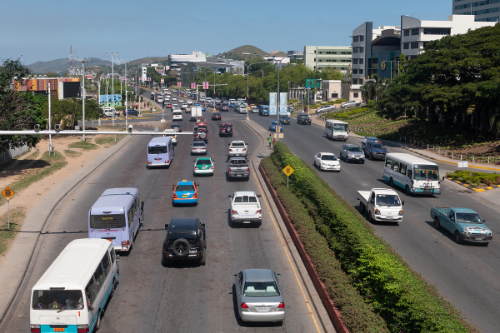Guinea Becomes Second-Largest Francophone West African Economy

TLDR
- Guinea’s economy jumped 51.2% overnight after Conakry completed a long-awaited rebasing of its gross domestic product
- The revision lifts Guinea’s GDP to more than €37 billion ($40 billion), moving it ahead of Senegal as the second-largest economy in francophone West Africa
- The IMF forecasts 6.5% expansion in 2025, rising to about 10% the following year as the $15 billion Simandou iron ore project begins production
Guinea’s economy jumped 51.2% overnight after Conakry completed a long-awaited rebasing of its gross domestic product, adopting the UN’s 2008 System of National Accounts.
The revision lifts Guinea’s GDP to more than €37 billion ($40 billion), moving it ahead of Senegal as the second-largest economy in francophone West Africa, behind Côte d’Ivoire. Debt-to-GDP and other ratios improve on paper, though underlying fiscal pressures remain unchanged.
Growth is expected to accelerate. The IMF forecasts 6.5% expansion in 2025, rising to about 10% the following year as the $15 billion Simandou iron ore project begins production. Annual output of 120 million tonnes is set to make mining 26% of GDP by 2026, boosting foreign reserves and narrowing the current account deficit.
The country has also secured its first sovereign rating. S&P assigned Guinea a B+ with stable outlook on September 18, paving the way for its debut international bond sale. Still, poverty remains stubbornly high at 52%, with limited job creation outside mining.
Daba is Africa's leading investment platform for private and public markets. Download here
Key Takeaways
Guinea’s rebasing highlights the paradox facing resource-rich African economies: rising headline GDP and strong macro indicators, yet persistent poverty and vulnerability. The Simandou project could transform the country’s fiscal position, generating up to $2 billion annually in iron ore exports by the end of the decade. Coupled with rising bauxite shipments—expected to hit 200 million tonnes by 2025—Guinea is set to become one of the world’s top mineral exporters. But growth concentrated in mining risks deepening inequalities. Non-resource sectors remain weak, and the World Bank warns that once the temporary construction boom at Simandou ends, thousands of workers could be left without jobs. With gross national income per capita below $2,000, poverty reduction requires diversification into manufacturing, services, and agriculture. The sovereign rating upgrade gives Conakry new borrowing options, but debt sustainability will hinge on fiscal discipline. The budget deficit reached 4.8% of GDP in 2024, while public debt has risen due to infrastructure spending. Investors may be attracted by the B+ rating, but long-term stability will depend on whether mining revenues are channeled into broader economic transformation.

Next Frontier
Stay up to date on major news and events in African markets. Delivered weekly.
Pulse54
UDeep-dives into what’s old and new in Africa’s investment landscape. Delivered twice monthly.
Events
Sign up to stay informed about our regular webinars, product launches, and exhibitions.




